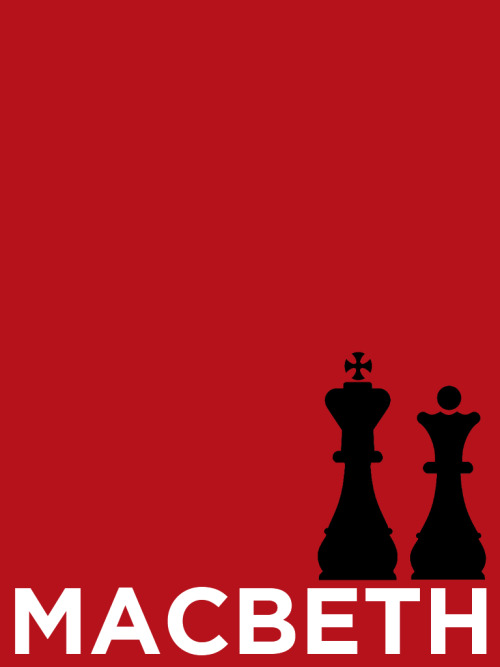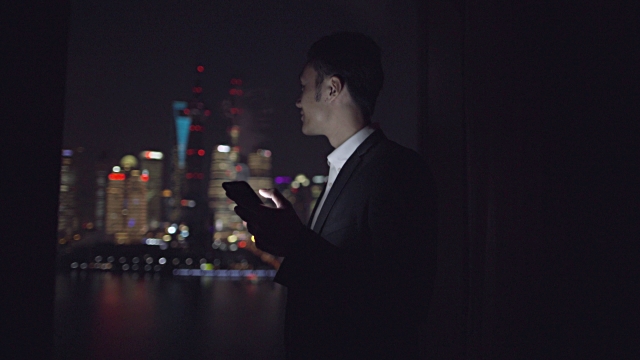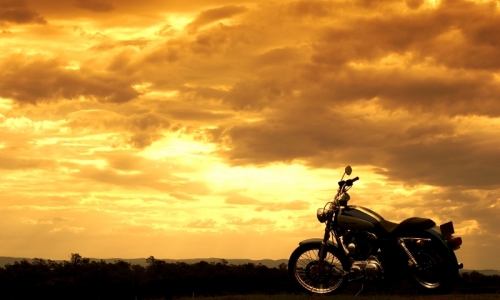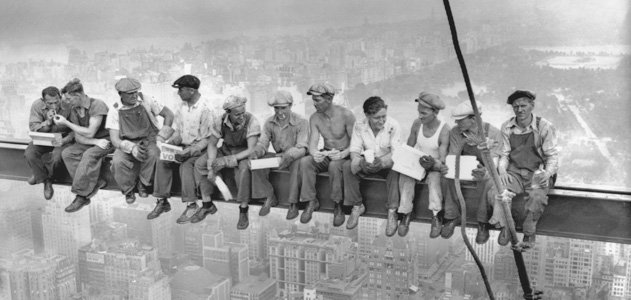Venkatraman Ravindra

The Tragedy of Macbeth, has lived for four centuries and a decade since its birth. I don’t think that I’d be going too far if I said, that it will continue living, for another four (or more). Though too stretched the time might seem, given the rate of change humankind is going, but it’s no exaggeration really. As the amount of four hundred years is only infinitesimal in the fraction of our entire existence on this planet (and when I say our, I mean humankind’s).
Macbeth is one of Shakespeare’s darkest, murkiest, and goriest of plays, also the shortest and my most favourite of the ones of which I’ve read.
I suppose we would not still be interested in Shakespeare at all if his characters all seemed unrecognisably strange and alien to us. After all, Harold Bloom has famously claimed in Shakespeare and the Invention of the Human (1998) that Shakespeare invented humanity as we understand it, and he would surely never have been able to make such an assertion if it were not at least partly true that we can recognise Shakespeare’s characters as being like ourselves. [1]
High Middle-Age was the time when Macbeth, the Red King, ruled Scotland. Elizabethan was the age, when the play was dramatized from Holinshed’s Chronicles (1577) of Macbeth, but contemporary it is, in most, if not in all ways. And subtly modern is the nature of the whole play and if it were to be retold, today, and if there was a writer as gifted (talented), then I see no reason why the play would be changed in any way or written any different (other than the archaic language of course).
What’s ironic is that ‘Macbeth’ means ‘the son of life’, but what he does is take lives. And the cause for him to commit murder you ask? Well, it’s power of course. Power is the supreme motivator to cause such dreadful deeds. Power is also a pre-dominant and powerful theme that runs throughout the play. Shrewd Macbeth is with a shrew for a wife, who is not only a ‘companion’ just bound by the definition of the word, but also a partner in crime, his (not so) better half. Seeming to outdo, outwit, outfox, outstrip, outmatch and outsmart all others than himself (and the Lady), in his blind passion for power, Macbeth, takes the immoral road, which by a series of fatalistic and deterministic events, led by the three witches, to the throne, and ultimately to his doom.
I’ll try to explain the contemporariness of the play with the word ‘Macbethism’, which I’ll define and apply for all the three methods, and also which I’ll elaborate. The threefold isomorphisms between the play and the modern world (id est, the political, psychological and the supernatural similarities).
Macbethism (n.)
- A doctrine of sovereignty attained by consciously refusing to accept the principles of morality, or in simple terms, the immoral road taken to gain power.
- A frenzied, sleepless delirium accompanied by wild and frightening hallucinations. (corybantism).
- The quality of being attributed to power that seems to violate or go beyond natural forces.
Now that the word is defined, we come on agreeable terms, and now that we know many a people who fall under (any one of) this threefold philosophy of Macbethism. And when I say fall, yes, I mean fall, as in the fall of Rome, or perhaps the fall of Lucifer, or better still, the fall of man. Macbethism continues and continues to continue, either till, (as I mentioned in the abstract) our evolution, or our extinction.
On Political Isomorphisms
Fair is foul and foul is fair. [2]
Everything’s fair in the game of politics. Fair, as long as you’re on the winning side of the table. And vice-versa for foul.
From Napoleon Bonaparte to Napoleon of the Animal Farm, power has corrupted everyone alike, be it in a piece of fiction, or otherwise (real). It gets hold of our very nature of being human and turns us into something we’re not. Something dangerous. Danger to ourselves and to the others around us. The greatest of the political leaders we’ve come across in history, the people to have tasted the best flavours of the fruits, power had to offer, are examples of the drasticity of how powerful, power itself can be. The many matricides, patricides, sororicides, filicides, fratricides, avunculicides, perricides and mariticides that have happened in history, to gain power, are scenes seen too often a time. Power is one of the main aspects which defines Macbeth. It shows us how the search for power and the paths taken to attain it are often morally questionable, and oftener end up in insatiateness and unhappiness.
Politically, Macbeth is the story of a brave general, who heeds to a trio of some unreliable strangers (strange are the witches) who will prophesise of him gaining the highest power, the crown, though an irresistible temptation he has, his moral foundations will hold him back from doing an undoable deed and he’ll have his doubts. But Lady Macbeth is persuasive
Was the hope drunk
Wherein you dressed yourself? Hath it slept since?
And wakes it now to look so green and pale
At what it did so freely?
…Art thou afeared
To be the same in thine own act and valour
As thou art in desire
…When you durst do it, then you were a man; [3]
These are the lines she tells her husband, questioning his manliness, wanting the power of the throne, as she has already made up her mind to murder Duncan, disregarding or not bothering about the means to attain that power.
The play has sprung an innumerable number of movies, TV shows, poems and other works of literature. It wouldn’t have happened if it weren’t for the timelessness of the play. Retelling the story of Macbeth has never been too old. The many great examples of retellings and adaptations of the play, inspired by, similar to, or completely alike, Macbeth, with the political ramifications in modern account (from rising to power to the eventual and inevitable doom), include-
The House of Cards trilogy, the British political thriller television drama serial, which includes House of Cards, To Play the King, and The Final Cut, containing four episodes each, and which aired from 1990-1995, is the story of the antihero, Francis Urquhart, a fictional Chief Whip of the Conservative Party. The plot follows his amoral and manipulative scheme to become leader of the governing party and, thus, Prime Minister of the United Kingdom. The story of House of Cards is adapted from a novel written by Michael Dobbs, a former Chief of Staff at Conservative Party headquarters. Political elements of Macbeth are quite evident in the series.
House of Cards (2013-Present), an American political drama television series. The series deals primarily with themes of ruthless pragmatism, manipulation and power. House of Cards is the story of Francis Underwood (whose character is in many ways similar to Macbeth), a Democrat from South Carolina’s 5th congressional district and House majority whip who, after being passed over for appointment as Secretary of State, initiates an elaborate plan to get himself into a position of greater power (which being the position of the president of the United States), aided by his wife, Claire Underwood (who’s pretty much like Lady Macbeth).
Maqbool is a 2003 Indian crime drama film directed by Vishal Bhardwaj, The film is based on William Shakespeare’s Macbeth and with Mumbai underworld as its backdrop. Maqbool is the right-hand man of Jahangir Khan (alias Abba Ji), a powerful underworld don. Maqbool is grateful and feels a close connection and personal indebtedness to Abba Ji. The movie gains pace with two corrupt police-men predicting that Maqbool would soon take over the reins of the Mumbai Underworld from Abba Ji. These two thus play a role akin to the three witches in the original play. [4]
Scotland, PA (2001). The tragedy is reworked into a dark comedy set in 1975, centered on “Duncan’s Cafe”, a fast-food restaurant in the small town of Scotland, Pennsylvania. The character of Macbeth is presented as “Joe ‘Mac’ McBeth”, Lady Macbeth as “Pat McBeth”, Duncan as cafe owner “Norm Duncan”, Macduff as “Lieutenant Ernie McDuff”, and Banquo as fry cook “Anthony ‘Banko’ Banconi”. The Three Witches are presented as a trio of bohemians. [5]
To me you speak not.
If you can look into the seeds of time,
And say which grain will grow and which will not,
Speak, then, to me, who neither beg nor fear
Your favors nor your hate. [6]
These are the lines of Banquo, right after hearing the three witches prophesising that Macbeth will become the Thane of Cawdor, and that shalt be King hereafter! Quite certainly apparent that he too was seeking a kind of solace in wanting to know of the future, he desired to know on his own future (of power), from the imperfect speakers.
Here are some names of hungry-for-power real people who are quite similar to Macbeth by means of attainment of that power and by the means of ruthless murders and genocides. The lust for power is startlingly, starkly and grimly evident in these “humans”.
- Crown Prince Dipendra of Nepal
- De facto leader Kim Jong Il (N. Korea)
- North Korean leader Kim Jong-Un
- Soviet Union leader Joseph Stalin
- Ugandan dictator Idi Amin
- Libyan potentate Muammar al-Qaddafi
- Iranian subverter Ruhollah Khomeini
- Che Guevara (Cuban Revolutionary)
- Robert Mugabe, Ruler of Zimbabwe
- Ayatollah Ali Khamenei, Supreme Leader of the Islamic Republic of Iran
- Foday Sankoh, Leader and founder of the RUF, Sierra Leone
- Mullah Omar, the spiritual leader of the Taliban
- Jonas Savimbi, Angolan political and military leader
- Haji Muhammad Suharto, Indonesia
- Saddam Hussein, President of Iraq
- Jean Kambanda, Rwandan dictator
- Augusto Pinochet, Chilean dictator
The list goes on and on… There are more Macbeths in reality than one can imagine. Macbethism is more prominent today than it ever was. But instead, there are adaptions and amendments to it, without the element of murder, in other subtler, illegal and immoral means all the same.
On Psychological Isomorphisms
Is this a dagger which I see before me,
The handle toward my hand? [7]
The psychological disorders of the characters in the play elicits feelings in its readers and adds the interesting element to the play. As I feel we can relate to those feelings the characters are undergoing. Some moments in the play, is a play on our psyche, evoking thoughts on why a character would do or think that, or what we, ourselves would do, if in that situation.
The emotions and the personality itself of the characters of the play metamorphosizes drastically as the play is a short one, and it brings the thrilling shift in the minds of the readers as well.
In Macbeth (1606) Shakespeare took two different stories from Holinshed’s chronicle of Scotland (Donwald’s murder of King Duff and the career of Macbeth) and worked this somewhat primitive material into a profound dramatic presentation of progress of evil within a human personality. The tragedy is given power and scope by the poetic expansion of meaning through imagery as well as by the persuasive and moving projection of character. [8]
Conscious actions by Macbeth and Lady Macbeth, yield unconscious results. Their consciously thought out and executed murder of Duncan and later Banquo, results in them acquiring the fated psychological disorders. If Lady Macbeth, today, were to be examined by a psychiatrist, she would probably be diagnosed as a victim of manic-depressive psychosis, bipolar disorder, with post-traumatic stress disorder, and in the end, the gnawing guilt drives her insane, leading to her somnambulism and clinical depression. When she cannot take the guilt no more, she ultimately commits suicide.
She should have died hereafter; [9]
This is the reaction of Macbeth after hearing the death of his wife which suggests his perfunctoriness. Delusions of grandeur, megalomania, paranoia schizophrenia, whose symptoms include false beliefs, unclear or confused thinking, auditory hallucinations; and immortality and invincibility complex are some of the disorders that can be diagnosed with Macbeth. The second definition of Macbethism is applicable to both of them here.
Some of the famous people who had the similar mental illnesses as Macbeth and Lady Macbeth. Ludwig van Beethoven experienced bipolar disorder, so did Winston Churchill and Vincent van Gogh. Stephen Fry and Carrie fisher also have it. Diana, the princesses of Wales, experienced bouts of depression. Ernest Hemingway suffered from suicidal depression. John Nash, the Nobel Prize winner, had schizophrenia. Heath Ledger battled insomnia, drug abuse and depression. Issac Newton’s main symptoms were melancholia, or depression, with a desire to withdraw from contact with even good friends, apathy, insomnia, loss of appetite, a period of persecution when he suffered the delusion that his friends were turning against him, and possible loss of memory and amnesia. [10]
Hell! What is hell to one like me
Who pleasures never knew;
By friends consigned to misery,
By hope deserted too? [11]
Macbeth can be a reminder of the dire effects on the psyche of a person and can lead to a whole lot of psychological disorders, or reactions that is a consequence of unscrupulous causes or actions.
On Supernatural Isomorphisms
A title so feared,
Cursed is the same
Then curse be endeared,
For Macbeth is the name.
The reality of witchcraft or enchantment, which, though not strictly the same, are confounded in this play, has in all ages and countries been credited by the common people, and in most, by the learned themselves. These phantoms have indeed appeared more frequently in proportion as the darkness of ignorance has been more gross; but it cannot be shown that the brightest gleams of knowledge have at any time been sufficient to drive them out of the world. [12]
The quality of being attributed to power that seems to violate or go beyond natural forces, the supernatural element in the play, is the modern equivalent to superstitions. And superstition can be defined as an irrational belief arising from ignorance or fear.
By the pricking of my thumbs,
Something wicked this way comes. [13]
The use of the supernatural element in the play, increases the suspense of the readers, and after the decisions of Macbeth, taken by constantly relying on the prophecies of the three witches. Not unlike Macbeth believing in prophecies, the modern world too believes in pseudoscience, horoscopes, astrology and all sorts of other superstitious nonsensical disbeliefs.
The Forer effect (also called the Barnum effect after P. T. Barnum’s observation that “we’ve got something for everyone”) is the observation that individuals will give high accuracy ratings to descriptions of their personality that supposedly are tailored specifically for them, but are in fact vague and general enough to apply to a wide range of people. This effect can provide a partial explanation for the widespread acceptance of some beliefs and practices, such as astrology, fortune telling, graphology, religion, aura reading and some types of personality tests. [14]
Though not as explicit the witches prophesise the fate of Macbeth, or anything close, the Barnum effect is the closest thing that can hoodwink you to fatalism and determinism today. Many books too, such as The Secret of Rhonda Byrne, based on the superstitious law of attraction, can mislead people into believing the absurd and make them something they’re not. Here are some of the statements that are vague and general enough to most people, from Bertram’s test, the demonstration of psychologist Bertram R Forer his Effect.
- You have a great need for other people to like and admire you.
- You have a tendency to be critical of yourself.
- You have a great deal of unused capacity which you have not turned to your advantage.
- While you have some personality weaknesses, you are generally able to compensate for them.
- Disciplined and self-controlled outside, you tend to be worrisome and insecure inside.
- At times you have serious doubts as to whether you have made the right decision or done the right thing.
- You prefer a certain amount of change and variety and become dissatisfied when hemmed in by restrictions and limitations.
- You pride yourself as an independent thinker and do not accept others’ statements without satisfactory proof.
- You have found it unwise to be too frank in revealing yourself to others.
- At times you are extroverted, affable, and sociable, while at other times you are introverted, wary, reserved.
- Some of your aspirations tend to be pretty unrealistic.
- Security is one of your major goals in life.
Belief in the paranormal
There is evidence that having prior belief in the paranormal correlates with greater influence of the effect. Subjects who, for example, believe in the accuracy of horoscopes have a greater tendency to believe that the vague generalities of the response apply specifically to them. This suggests that individuals who do not believe in astrology are possibly influenced less by the effect. [15]
I conclude by saying that all the three of the comparisons I made between the play and some of the aspects of the modern world, it can be agreeable that Macbeth is a sublime play of human character and cannot be agreeable that it isn’t contemporary.
Notes
Beginning Shakespeare (page 20)
The Tragedy of Macbeth (1.1.10)
The Tragedy of Macbeth (1.7.35-49)
http://en.wikipedia.org/wiki/Maqbool
http://en.wikipedia.org/wiki/Scotland,_PA
The Tragedy of Macbeth (1.3.57-61)
The Tragedy of Macbeth (2.1.33)
A Critical History of English Literature volume two (page 280)
The Tragedy of Macbeth (5.5.16)
http://rsnr.royalsocietypublishing.org/content/62/3/289.full
The lines are from the poem “The Suicide’s Soliloquy.” Abraham Lincoln is assumed to be the author of the poem published on August 25, 1838. And also believed he suffered from depression.
From Johnson’s Shakespeare (1765) [Shakespeare: Macbeth, casebook series].
The Tragedy of Macbeth (4.1.45)
& 15. http://en.wikipedia.org/wiki/Forer_effect
Bibliography
Shakespeare, William. Edited by- Wilks, Robert. Macbeth. Singapore, Pansing Distribution Pte Ltd, ISBN: 981 3030 038, 2006.
Hopkins, Lisa. Beginning Shakespeare. Chennai, Manchester University Press, ISBN: 0-7190-6423-6, 2007.
Daiches, David. A Critical History of English Literature. London, Secker & Warburg ISBN: 0-436-12105-0, 1994.
Wain, John. Shakespeare: Macbeth, A Casebook. Hong Kong, Macmillan Press Ltd, ISBN: 0-333-53356-9, 1994.
Shakespeare, William. Shakespeare: The Complete Works. Mumbai, Wilco Publishing House, ISBN: 978-81-8252-462-0, 2013.
Bloom, Harold. Bloom’s Shakespeare Through the Ages: Macbeth. New York, Bloom’s Literary Criticism, ISBN: 978-0-7910-9594-2, 2013





